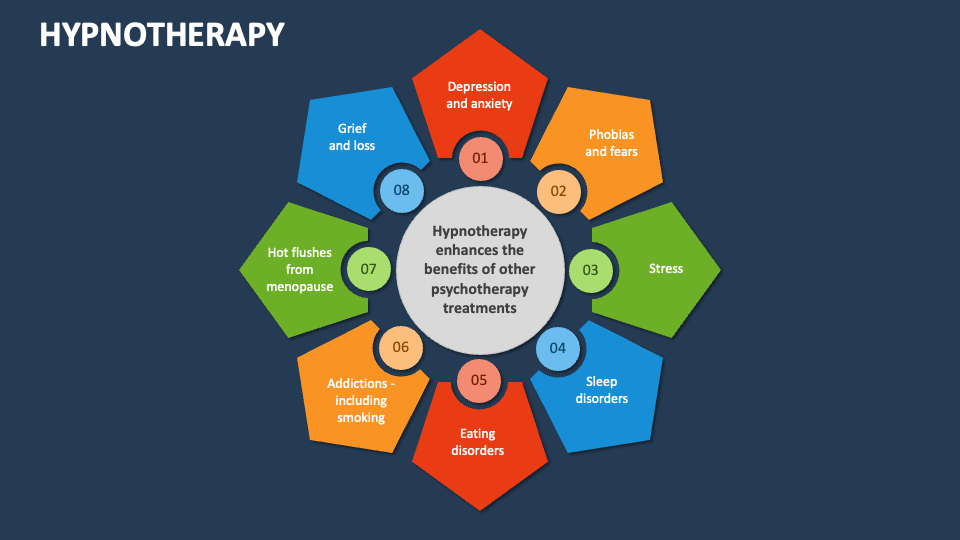Hypnotherapy: A Proven Course to Quit Smoking for Great
Hypnotherapy has actually become an interesting approach for those looking for to break without the restrictions of smoking dependency. By targeting the subconscious mind, this healing technique not only attends to the physical dependence on nicotine however also unwinds the psychological triggers that continue the behavior. Study suggests that hypnosis can significantly improve the likelihood of successful cessation. As we explore the concepts and efficiency of this technique, it ends up being important to consider what individuals can expect during their sessions and just how this modality can enhance traditional methods in cultivating long-term change.
Understanding Hypnotherapy
Hypnotherapy, as a restorative technique, leverages the power of concentrated interest and increased suggestibility to assist in favorable behavior adjustments. hypnotherapist tucson arizona. This technique involves directing people right into a trance-like state, identified by deep leisure and focus, which enables for increased understanding to suggestions. The process is not regarding losing control, yet instead boosting the person's ability to access their subconscious mind, where lots of routines and habits are rooted
During a hypnosis session, a qualified specialist uses verbal signs and images to assist clients visualize their goals, instilling favorable affirmations and lifestyle modifications. This approach is based in psychological concepts, attracting on the understanding that the subconscious mind can influence beliefs and activities much more exceptionally than conscious idea alone.
Hypnotherapy is frequently utilized to address different problems such as anxiety, anxiety, and phobias, in addition to smoking cigarettes cessation. As a complementary method to traditional therapies, hypnosis offers an unique path for those looking for long lasting modification and self-improvement (hypnotherapist).
How Hypnotherapy Assists Cigarette Smokers

During sessions, a qualified hypnotherapist overviews the cigarette smoker to explore the source of their addiction, helping them to acknowledge and change the unfavorable idea patterns that enhance their desire for nicotine. This process can significantly reduce desires and reduce the emotional reactions connected with smoking cigarettes.
In addition, hypnotherapy can enhance the smoker's self-efficacy, empowering them to imagine a smoke-free way of life and strengthening their commitment to quit. The technique frequently integrates positive tips that urge much healthier habits and coping systems, better consolidating the desire to continue to be smoke-free.
Inevitably, hypnosis addresses both the mental and behavior elements of cigarette smoking cessation, making it a thorough tool for those seeking to break free from cigarette dependancy. By promoting a much deeper understanding of personal triggers, individuals can efficiently browse their journey toward a much healthier, smoke-free life.
Study and Success Prices
Numerous research studies have actually investigated the performance of hypnotherapy as an approach for smoking cigarettes cessation, disclosing promising success prices. Research suggests that hypnotherapy can dramatically boost a person's probability of giving up compared to traditional cessation approaches. A meta-analysis of different studies reported that roughly 20% to 30% of individuals preserved abstaining from smoking for a minimum of 6 months after undertaking hypnotherapy, a notable boost contrasted to the 5% to 10% success price common of other treatments such as pure nicotine replacement therapies.
Additionally, a research published in the Journal of Clinical view it now Psychology discovered that hypnosis not just help in giving up yet also attends to the emotional aspects of dependency. Participants who undertook hypnosis reported reduced cravings and a diminished wish to smoke long after therapy.
In addition, some researches recommend that the mix of hypnosis with cognitive-behavioral techniques might produce even higher success rates. While specific results can differ, the expanding body of proof sustains hypnotherapy as a viable and effective alternative for those looking for to quit smoking, making it a necessary factor to consider for people fighting with nicotine addiction.
What to Anticipate in Procedure
During a normal hypnosis session for cigarette smoking cessation, clients can expect an organized yet personalized approach designed to address their specific demands and challenges. The session generally starts with a first appointment, where the specialist gathers information about the customer's smoking cigarettes background, sets off, and motivations for stopping. This fundamental understanding allows the therapist to customize the session effectively.
As soon as the foundation is laid, the client is guided right into a kicked back state of hypnosis, which facilitates enhanced focus and receptivity - hypnotherapist tucson arizona. In this state, the specialist uses numerous techniques, such as favorable affirmations and visualization, aiming to reframe the client's connection with cigarette smoking. For example, the therapist might help the customer imagine a life cost-free from cigarettes, enhancing the benefits of giving up.

Added Support Methods
To enhance the efficiency of hypnotherapy for smoking cigarettes cessation, individuals can incorporate extra support techniques that strengthen their commitment to stopping. Involving family members and pals who comprehend the difficulties of stopping can supply the needed inspiration and responsibility.
Mindfulness techniques, such as reflection and deep-breathing workouts, can additionally be valuable. These strategies aid manage food cravings and minimize anxiety, which is commonly a trigger for smoking. Additionally, keeping a journal to track progress, ideas, and sensations can supply insights and enhance motivation.

An additional efficient technique is to utilize electronic tools, such as cigarette smoking cessation apps, which use resources, pointers, and motivational messages. It's also sensible to inform oneself about the health and wellness benefits of quitting and the risks of smoking cigarettes, as this expertise can reinforce one's resolve.
Verdict
In final thought, hypnosis provides a effective and viable option for people seeking to stop cigarette smoking. use this link Ultimately, hypnosis adds considerably to the more comprehensive landscape of smoking cessation approaches.
Hypnotherapy is commonly employed to attend to numerous issues such as stress and anxiety, stress and anxiety, and phobias, in addition to cigarette smoking cessation.Numerous studies have actually examined the effectiveness of hypnosis as a method for cigarette smoking cessation, exposing appealing success rates.During a regular hypnotherapy session for smoking cigarettes cessation, customers can expect an organized yet individualized approach designed to address their specific needs and their explanation obstacles.To improve the performance of hypnosis for cigarette smoking cessation, individuals can incorporate extra assistance methods that reinforce their dedication to stopping.In verdict, hypnosis offers a viable and efficient option for people seeking to stop smoking cigarettes.